Our Work
Cystic Fibrosis Science
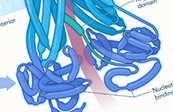
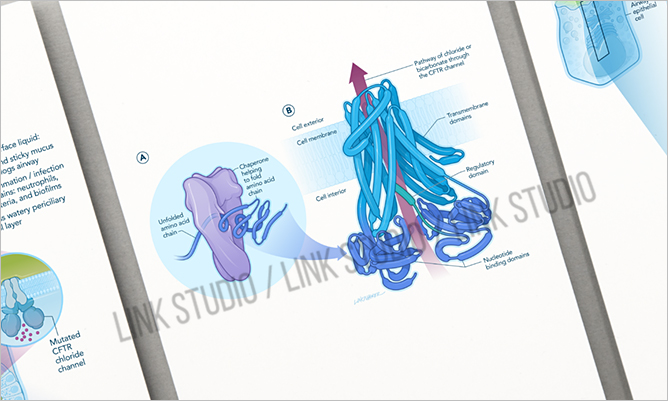
Cystic Fibrosis Transmembrane Conductance Regulator (CFTR) Protein Folding Overview
The CFTR protein is a long chain of amino acids (simplified to show the basic form) that are folded by many specialized proteins (greatly simplified in this figure) taking part in the folding process. Once folded correctly, the protein is integrated into the cell membrane and functions as a chloride and bicarbonate channel. The figure was developed to show the basic pattern and concept of the very long protein chain being folded to create a functioning protein machine.
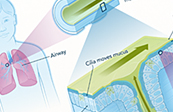
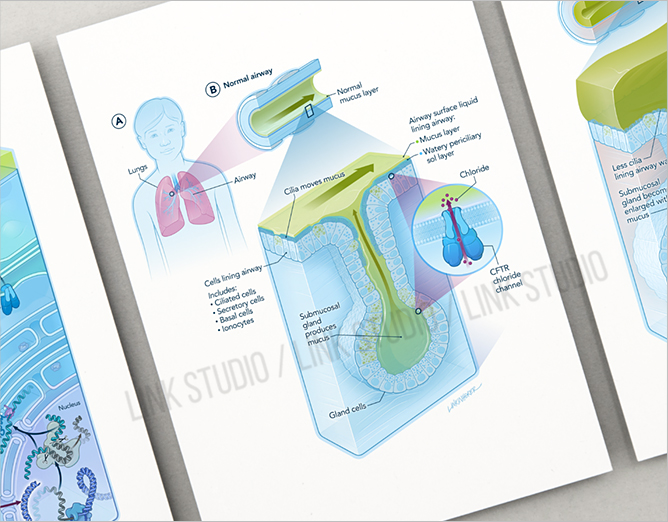
Cells Lining the Airway, with Special Attention on Cilia, CFTR, and ASL
The airways of the lungs (trachea, bronchi, and bronchioles) are lined by specialized cells and glands that produce airway surface liquid (ASL), which helps keep the airway clean and healthy. The CFTR channel protein has the fundamental task of keeping the chemical balance of the ASL healthy, specifically related to chloride ions. When the CFTR channel protein is non-existent or damaged, the ASL will become thick, sticky, and potentially infected with bacteria, causing a host of symptoms for people with cystic fibrosis.
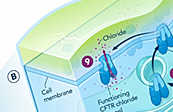
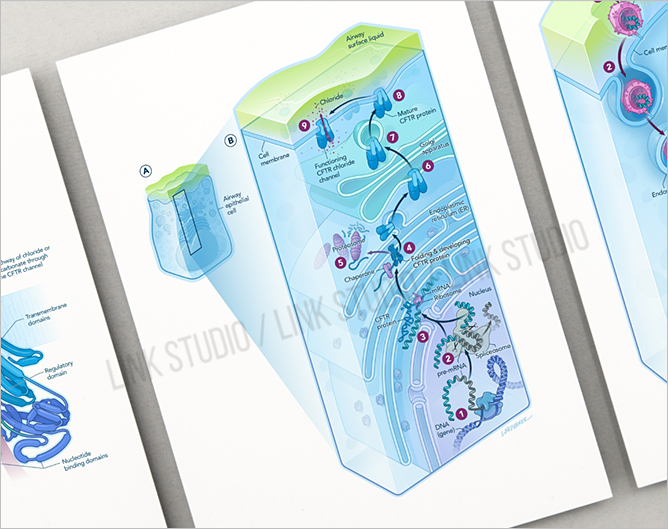
CFTR Protein Development Within An Airway Cell
Genes (strands of DNA) within the cell nucleus encode (contain the recipe) for the CFTR protein, which causes a chain reaction of important events leading to the creation of healthy, functioning CFTR on the surface of the cell.

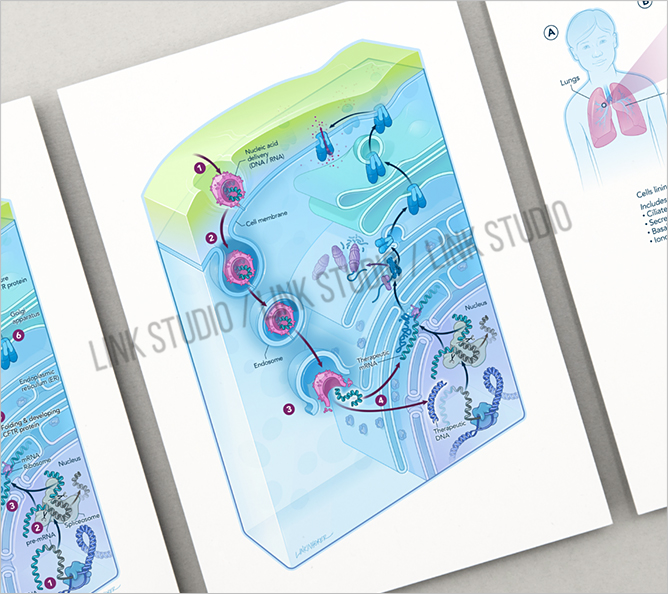
Therapeutic Nucleic Acids (mRNA or DNA) Delivered to Produce Normal CFTR
People with cystic fibrosis have gene(s) that do not produce normal functioning CFTR. Therefore, scientists are developing new therapeutic techniques to introduce strands of genetic material (nucleic acids: mRNA or DNA) that will integrate with the poorly functioning genetic machinery and help it produce normal functioning CFTR protein.
Client
- Cystic Fibrosis Foundation
Category
- Medical Illustration
Industry
- Healthcare
- Non-Profit Organization
Audience
- Media Relations
- Educators
- Patient Education
Specialty
- Cell / Molecular Biology
- Pulmonology